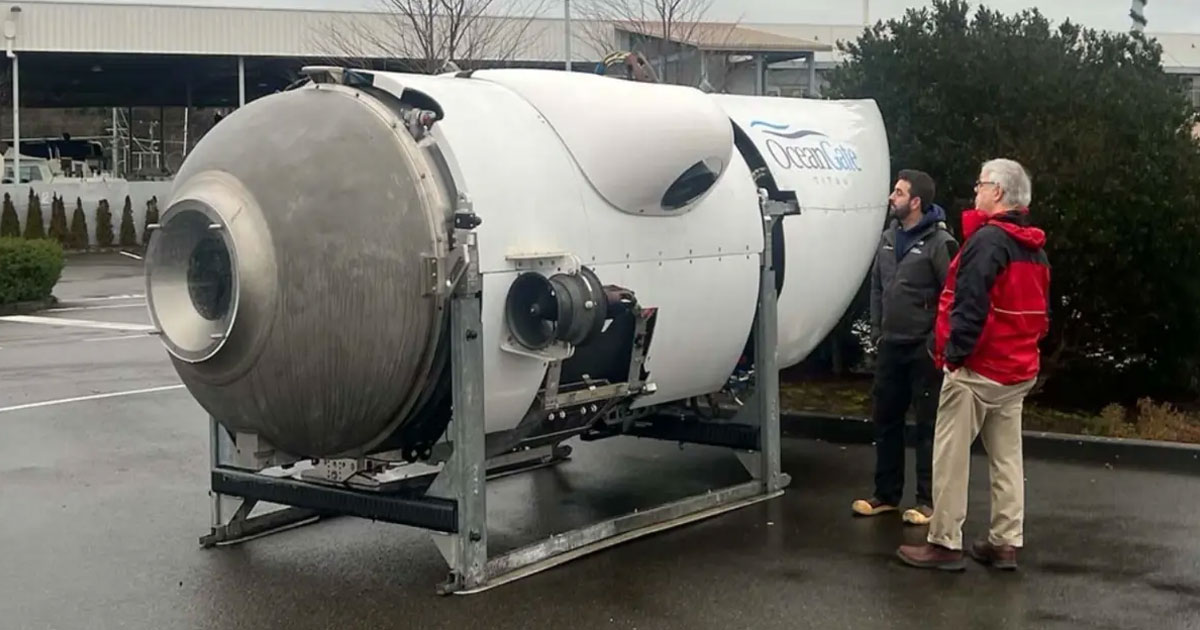New evidence strongly suggests that OceanGate’s submersible, which imploded and killed all passengers on its way to the Titanic wreck, was unfit for the journey. The CEO, Stockton Rush, bought discounted carbon fiber past its shelf life from Boeing, which experts say is a terrible choice for a deep-sea vessel. This likely played a role in the submersible’s tragic demise.



Honestly, the most surprising thing is that they managed 6 successful dives to titanic before it failed.
And that they convinced multiple billionaires, who are presumably educated enough to know better, to step aboard their blatantly-unseaworthy deathtrap.
This does a lot to dispel the notion that billionaires are smarter than everyone else.
Guess what, billionaires aren’t smarter than everyone else. Usually it’s just existing wealth, luck and a lack of morals that gets them there.
The system is rigged to make it much much easier to make money if you already have money.
There are a lot of different types of characteristics that get described as ‘smart.’ Risk aversion is often categorized as ‘smart,’ as in “I’m too smart to do something that risky,” but that is definitely not something billionaires are known for - you can’t get that much money without big risky bets paying off.
Rich people don’t really seem to be smart so much as they just have a sort of rat-like cunning that confers high performance at screwing people and stealing shit.
On the contrary, I’ve long been of the opinion that anyone can claim their slice of the American Dream, just as long as they aren’t too picky about who they carve it out of. There doesn’t even need to be risk, per se, just some ambition, enough intelligence to know the limits of you can get away with, and a complete lack of shame.
Lack of shame doesn’t do you any good financially if you aren’t using it to take social risks that people with shame wouldn’t
Stress fatigue and fractures doesn’t show itself after one dive without completely tearing down the craft and inspecting components - and this was probably the deepest dive they’ve been on.
pressure increases on a log scale the deeper you go, so you need to account for that, evidently, they did not account for it, and they also failed to understand requirements for regular teardowns and inspections of prototypes.
Honestly I don’t find it surprising at all.
There are multiple times where people have died due to fractures as a stress fatigue in different areas.
I remember a story about the crash of United Airlines flight 232, in where a DC-10 suffering an undetected stress fracture after many flights finally broke an engine to the point of it severing out all hydraulic lines to the control surfaces - they had to try and land the plane via throttle. It’s actually a very interesting story if you want to look it up - they even made a movie for it.
The issue here is the number of dives it took before something failed catastrophicly - you usually engineer it to withstand the stress for X number of dives - 6 dives are far too few and and it is indicative of poor design and poor maintenance. - compare UA232 where it only happened after multiple years and 200+flights before it finally failed catastrophicly.
Pressure increases linearly in water because it’s not compressible. You’re probably thinking about the exponential increase in air
Whoops, I guess I made a mistake. Ah well.